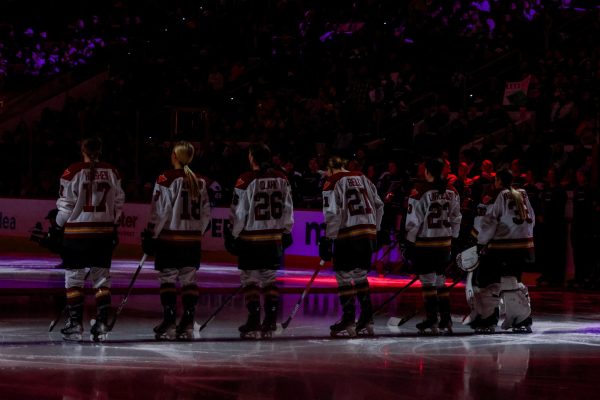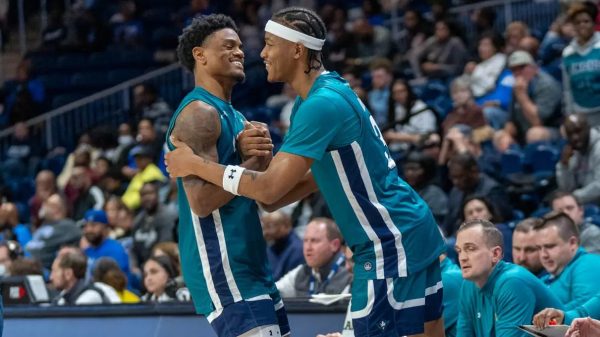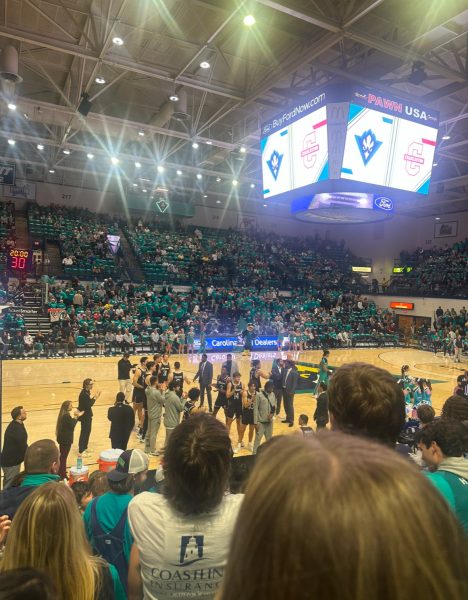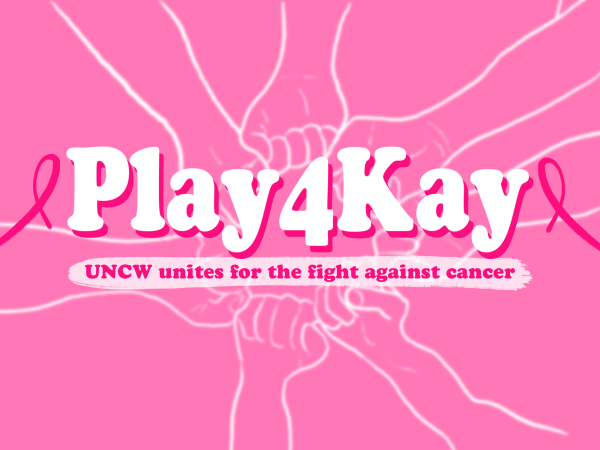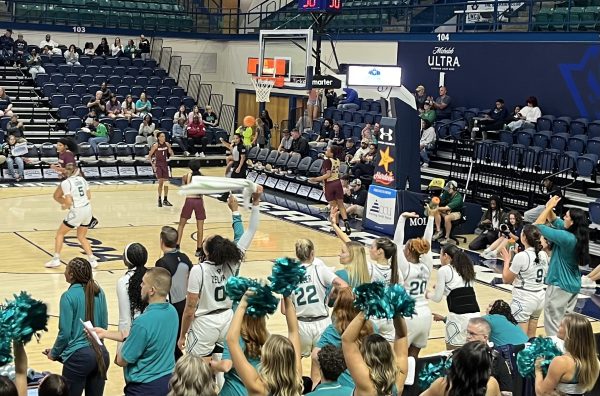UNCW Athletics welcome Oliver Luck to campus
On Nov. 1, student athletes at the University of North Carolina Wilmington were treated to a surprise talk by Oliver Luck, who visited the campus through an invitation by UNCW Chancellor, Jose “Zito” Sartarelli.
Luck, the NCAA’s Executive Vice President of Regulatory Affairs, played four years of college football at West Virginia University, graduating in 1982. He later returned to West Virginia, being hired in 2010 as athletic director for the university.
It was there he became associated with Sartarelli, who was hired the same month as Luck to serve as Dean of the College of Business and Economics.
Luck travelled to UNCW to act as a communicator between the NCAA’s national office and the student athletes.
“We are a group that makes policy,” said Luck, addressing a majority of UNCW’s athletic program at Trask Coliseum. “We think we know what we’re doing. Sometimes we do, sometimes we don’t, but it’s so important to the policy that we understand college athletes and the struggles they may have.”
It was evident Luck didn’t come to strictly talk business with these student athletes, but instead he connected with them through his own experiences.
“The four years I spent in football were, I think, the hardest four years of my life,” said Luck. “Not so much because of the football, but trying to do two things at once. It’s hard being a student and trying to be a full-time athlete.”
Luck not only knows about the struggle of college athletes through personal experience, albeit over 30 years ago, but his father does as well. His oldest son, Andrew, and his oldest daughter, Mary Ellen, both attended Stanford University playing football and volleyball, respectively. Andrew was taken number one overall in the 2012 NFL Draft by the Indianapolis Colts.
One of the hot-button issues Luck wanted feedback from the athletes on was the recent rise in popularity of online fantasy sports. Participation on these websites where a person wagers money on professional sports after drafting players each week are technically, a violation of the NCAA’s sports wagering policy—making it illegal for student athletes to participate.
“You are probably the first generation that has grown up with fantasy sports,” Luck said. “Most of you probably feel that it’s quite normal and that it’s not, in fact, a violation of gambling; as opposed to the old form of gambling, where you would go to a bookie and bet on the results of the football game, basketball game, and the point spread.”
In a personal statement to The Seahawk, Luck commented on another issue regarding finances in the NCAA and the possibility of paying players for their services as student athletes.
“Beginning this past academic year was the first year schools were allowed to do ‘cost-of-attendance’ stipends,” he said. “Every school has a gap between what the [athletic] scholarship is worth and what the full cost-of-attendance is, including room, books, board, tuition, fees, plus that stipend. You can’t pay more than that stipend, however, but you can do less.”
Universities at the Division-1 level in the NCAA have the option to hand out these stipends. Luck and the NCAA call this “permissive legislation”.
It seems this will be the closest college athletes will get to being fully compensated for their hard work, even if not all of them will be getting this benefit for various reasons relative to the school they attend.


